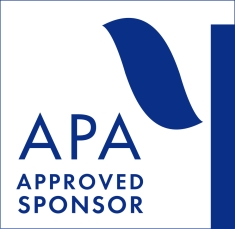Medical and Legal Marijuana in NJ: Practice and Policy Issues
Description
The goal of this interactive workshop is to identify the changes that have occurred in the NJ Medicinal Marijuana Program. The history of marijuana legalization and major events that have shaped this history are discussed. Known scientific research on the benefits of medicinal marijuana and the risks associated with marijuana usage are covered, as well as the continued barriers to better scientific research on this topic. Interactive exercises are incorporated. Other exercise includes the participants discussing how treatment is impacted by medicinal marijuana.
Learning Objectives
Participants will be able to:
- At the end of this course, participants will be able to interpret three changes that have occurred in the NJ Medicinal Marijuana Program.
- At the end of this course, participants will be able to analyze whether to continue services for a client on medicinal marijuana if their only diagnosis is cannabis use disorder.
- At the end of this course, participants will be able to identify at least three key historical events that shaped marijuana’s legal status in the United States.
Instructor Bio
Glenn Duncan, LPC, LCADC, CCS, ACS has been working in the behavioral healthcare field for thirty two years. He has lectured nationally on many topics including clinical supervision. He is a Licensed Professional Counselor, a Licensed Clinical Alcohol/Drug Counselor, a Certified Clinical Supervisor, and an Approved Clinical Supervisor. Glenn is currently the owner of Advanced Counselor Training, LLC since 2011. For 15 years (2003-2018) Glenn served as the Executive Director at Hunterdon Drug Awareness Program, Inc., retiring from the position in 2018.
Since 1999, Glenn has also specialized in, and has developed, a customized clinical supervision workshop series that ranges from 24 to 45 hours, depending on the licensure requirements of a given state. He is a leading lecturer for both addictions and mental health professionals regarding clinical supervision, and teaches this topic nationally. Glenn authored a chapter on the use of live supervision in a community treatment organization for the book entitled “The Use of Technology in Clinical Supervision and Training: Mental Health Applications.” Glenn has three written publications used for continuing education on the topic of clinical supervision, including virtual supervision and other technology issues.
Glenn is an expert on emerging drugs of abuse and current drug trends, and teaches this workshop nationally. He has consulted both locally in New Jersey and nationally with authorities on both the State and Federal levels. His presentations on emerging drugs of abuse have been used by officials in Illinois, Delaware, New Hampshire, and has been used by DEA officials for training purposes. Glenn also teaches on other topics such as harm reduction, cultural humility, medicinal and legal cannabis, and legal and ethical issues in counseling. He also teaches the ASAM Criteria 3rd and 4th Editions nationally (The American Society of Addictions Medicine, which is the medical/clinical necessity criteria for the substance use field).
Glenn has served as an expert panel member for a SAMHSA TIPS book on treating sub-acute anxiety in the substance using population. That TIPS book ended up never being published, so writing this here feels like somewhat of a justification for spending all that time on this ill-fated project.
Glenn Duncan, LPC, LCADC, CCS, ACS has no conflicts of interest for this program.
Contact Us
For questions, please contact: ce@gsapp.rutgers.edu
Continuing Education Information
Rutgers Graduate School of Applied and Professional Psychology (GSAPP) is recognized by the New York State Education Department's State Board for Psychology as an approved provider of continuing education for licensed psychologists #PSY-0123.
LMFT/MFT and LPC/LAC Licensed in New Jersey: Programs approved by the American Psychological Association are acceptable sources of continuing education credits. Please see https://www.njconsumeraffairs.gov/regulations/Chapter-34-Subchapters-10-31-Professional-Counselors.pdf, Section: 13:34-15.4 APPROVAL OF COURSES OR PROGRAMS on page 27. For all other professional licenses and certifications, please reference your issuing state board regulations regarding reciprocity of continuing education credits.

Rutgers Graduate School of Applied & Professional Psychology is approved by the American Psychological Association to sponsor continuing education for psychologists. Rutgers Graduate School of Applied & Professional Psychology maintains responsibility for this program and its content.
